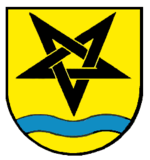- Drude
-
A drude (German: Drude, pl. Druden) is a kind of witch in German folklore associated with dreams. Drudes were said to participate in the Wild Hunt and were considered a particular class of demon in Alfonso de Spina's hierarchy.
Contents
Name
The term trut is thought to be derived from the Middle High German word trut or the Gothic word mini trut, both in the sense of "to be trut".[1] Supporting this are names for drudes based on the root to trut from the Alpine region such as trut or Romansh trut and a Bavarian word for a wizard, Truderer.
Other names for drudes include trutmahr ("Nightmare") and Walriderske.
Characteristics
According to old German belief, drudes are virgins and priestesses who are possessed in a certain way, enabling them to split off a drude from their spirit. This was known as the Drudenfluch or "drude's curse". Sometimes they voluntarily chose to do so, while in other cases it is forced upon them. Although this can have either a benevolent or malevolent effect on humans and elves, women suffering from the drude's curse will keep this a secret from their fellow human beings. The only way to free oneself from the curse is by being given a very tame and important domestic animal to pass the drude onto, which kills the animal in the process. It was believed that amongst seven daughters there would be one drude.
Drudes typically take the form of an ugly, old, withered woman, who is, at the same time, very heavy. This old woman creeps into homes at night through the smallest of cracks and openings. Once in the room, the drude sits on the person's chest and possesses them. Drudes are also shapeshifters and can appear as feathers, clouds of smoke, bumblebees, snakes or toads.
A drude is always female but often confused with the Trude, a half-human, half-birdlike being that shares some features with drudes.
The only way to prevent being possessed by a drude is by using a charm or exercising magic.
Drudenfuss
The Drudenfuss (or Drudenfuß), literally "drude's foot", also known as Drudenkreuz or "drude's cross", is believed to be the footprint of a drude with the power to ward off drudes. It was in common use in the Middle Ages, also as a signature mark amongst stonemasons. It is in the shape of a star with five points.
One of the charms against drudes is the Drudenstein or drude stone, a certain kind of stone with a natural hole in it.
A knife called Drudenmesser or "drude's knife" has nine half moons and crosses on its blade and is said to have the power to collapse a whirlwind by throwing this knife into a whirlwind that is forming.
In popular culture
Drude is Monster in My Pocket #111. She appears pliable and with one spidery leg, and appears to be opening a portal to another world within her torso.
In the German translation of the children's novel Ronia the Robber's Daughter, a member of the tribe of evil female human-bird beings is referred to as Drude or Wilddrude (wild drude) rather than Trude.
See also
References
- ^ Kluge, F. Etymologisches Wörterbuch der deutschen Sprache, Berlin 1989
- Lurker, Manfred. A Dictionary of Gods & Goddesses, Devils & Demons. Routledge, 1987.
Witchcraft and magic Types African witchcraft (Witch smeller · Vodun) · Asian witchcraft (Kulam) · European witchcraft (Akelarre · Benandanti · Brujería · Cunning folk · Seid · Völva · White witch · Witch Cult) · Asian witchcraft · North American witchcraft (Appalachian Granny Magic · Hoodoo · Huna · Pow-wow · Santería · Vodou · Voodoo) · South American witchcraft · Australasian witchcraft (Makutu) · Contemporary witchcraft (Feri Tradition · Hedge witchcraft · Stregheria · Wicca)Practices Animism · Coven · Divination · Familiar animal · Familiar spirit · Flying ointment · Herbcraft · Magic · Necromancy · Occultism · Poppet · Potions · Satanism · Spiritism · Spiritualism · Sigils · Shamanism · Witch ball · Witch's ladderFolklore and mythology Agamede · Aradia · Baba Yaga · Circe · Drude · Elbow witch · Hecate · Huld · Kalku · Medea · Obayifo · Witch of Endor · Sorginak · Spearfinger · Weird sisters · Sea witchMajor historic treatises Documentary film Categories:- Demons
- German folklore
- Witchcraft in folklore and mythology
- European mythology
Wikimedia Foundation. 2010.

